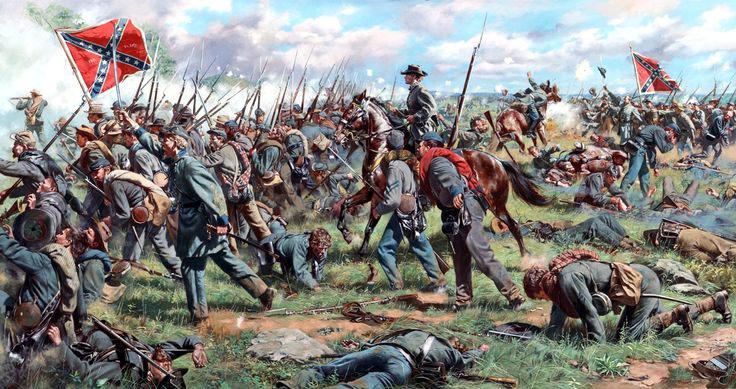Confederate Veteran magazine is filled with stories of camp slaves, who in one way or another demonstrate their unconditional loyalty to their masters. This often takes the form of rescuing their master’s injured body during or after a battle or in the event of his death escorting the body home for proper burial. These stories follow a standard form and the vast majority of them are not worth sharing.
This one is, not because of the dramatic re-telling of the securing of the body, but because of the setting in which it was shared:
Gen. Bob Toomb’s Pleas For Jim: The story is told that a negro under the charge of murder was being tried in a Georgia court. Much testimony had been taken, and it seemed to be very serious for the defendant, whose plea was self-defense. An old man in the court room arose and, addressing the court and jury, said: ‘Please your honor and gentlemen of the jury, years ago my only brother fell wounded on the battlefield of Gettysburg. He lay there bleeding to death, with no one to help him. Shot and shell, the fierce, fiery stream of death were sweeping the earth about him. No friend dared go to him, no surgeon would approach him. The singing of bullets and the wild music of shells were his only requiem. My brother had a body servant, a negro man, who waited on him in camp. The negro saw his master’s danger, and straight out into that hell of battle and flame and death he went. A cannon shot tore the flesh from his breast; but on he went gathering my brother in his arms, the blood of the man mingled with the blood of his master, he bore him to safety and to life. Jim, open your collar.’ He did so, and the jury saw on his breast long, jagged scars where the shell had ripped its way. Continuing, General Toombs said: ‘Jim’s skin is black; he is a negro; but the man that would do what Jim did for my brother has a soul too white ever to have killed a man except in defense of his own life.’ Jim was cleared.
Confederate Veteran, Vol. XVII (September 1909): 476.

“…in the event of his death escorting the body home for proper burial.”
Escorting bodies home is a stock narrative, usually dredged out for reconciliation purposes. My Loyalist ancestor allegedly escorted a Patriot neighbor’s body home …. something I find HIGHLY dubious in Revolutionary South Carolina.
Likewise with Confederate slaves, I tend to doubt every one I read, unless there is some VERY good documentation. It sounds to me like the laziest kind of loyalty narrative, since the master is dead anyway and can’t corroborate the story.
To complete your circle, Henry Grady was close to Toombs growing up, counted him as a second father after the war, and remained a great admirer of him. Alexander Stephens was also part of that group.
Thanks, Ken.
Why aren’t they worth sharing?
If you’ve read one, you pretty much have read them all. Like I said, they follow a predictable narrative: “Uncle” ___ was completely devoted to me and would do anything for me.
That may be true, but I’d still like to know some sources for them.
You can search Confederate Veteran online. Enjoy.
Thanks! No books or letters that you know of?
I am working on it. 🙂